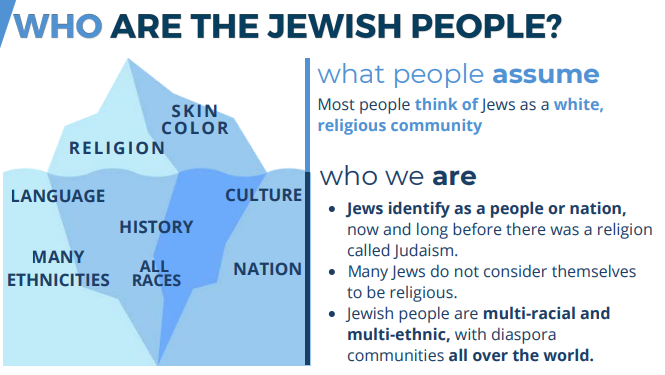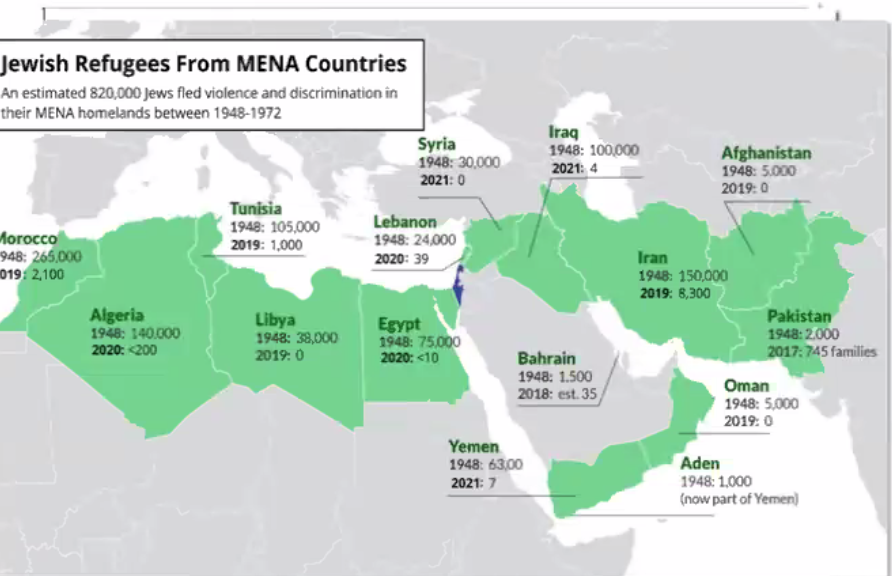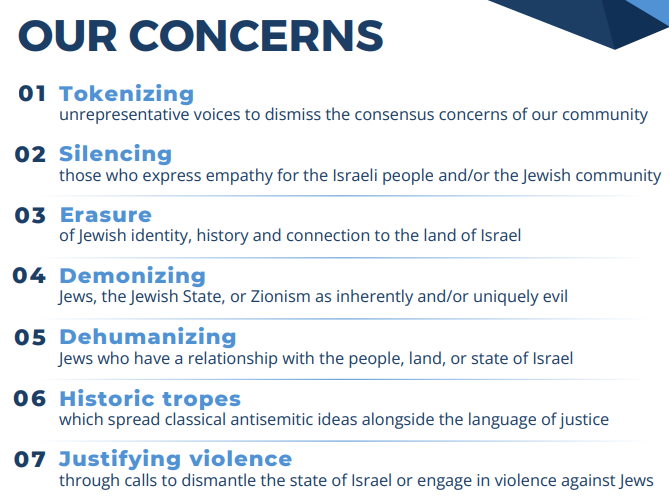In February, Ameinu sponsored a webinar with Zachary Schaffer, a co-founder and Vice President for Community Engagement of Project Shema, which “trains and supports the Jewish community and allies to understand and address contemporary antisemitism, with an emphasis on how anti-Jewish ideas can emerge in discourse around Israel and Palestine.” The Third Narrative is a partner in this effort; one can freely download Project Shema’s booklet by clicking on its title, “Addressing Antisemitism: A Guide for Allies — Identifying, Understanding and Addressing Anti-Jewish Harm.”
Project Shema approaches antisemitism as a social justice issue, involving threats against Jews as individuals and as a people, especially during this time when such threats are on the rise. An important aspect of this approach is to identify Jews properly as a “people” and not simply as adherents of a religion, which many Jews do not practice or particularly identify with.

The diverse nature of Jewish identity runs counter to the simplistic belief that Jews are all “white” and therefore privileged and powerful. Jews also need to be understood as a small, vulnerable and often persecuted minority as illustrated by these graphics from Schaffer’s powerpoint:



Schaffer and Project Shema also address the semantics of antisemitism and all forms of prejudice — the problematic use of good & evil “binaries” that cast blame on entire populations rather than political leaderships. This is especially pertinent to discussions of Israel and depictions of “Zionism,” which are often demonized. Project Shema does not advocate specific views relating to Israel’s policies and controversies as a state actor, but it does affirm the “land of Israel” as a component of identity for most Jews. Hence, it rejects as “tokenism” deploying the opinions of a minority of Jews who vociferously oppose the State of Israel’s existence as if they are widely representative of the Jewish community.

Among the countermeasures recommended by Project Shema is to include Jewish concerns in the DEI (Diversity, Equity, and Inclusion) agendas of business, educational and governmental institutions.
TTN Staff